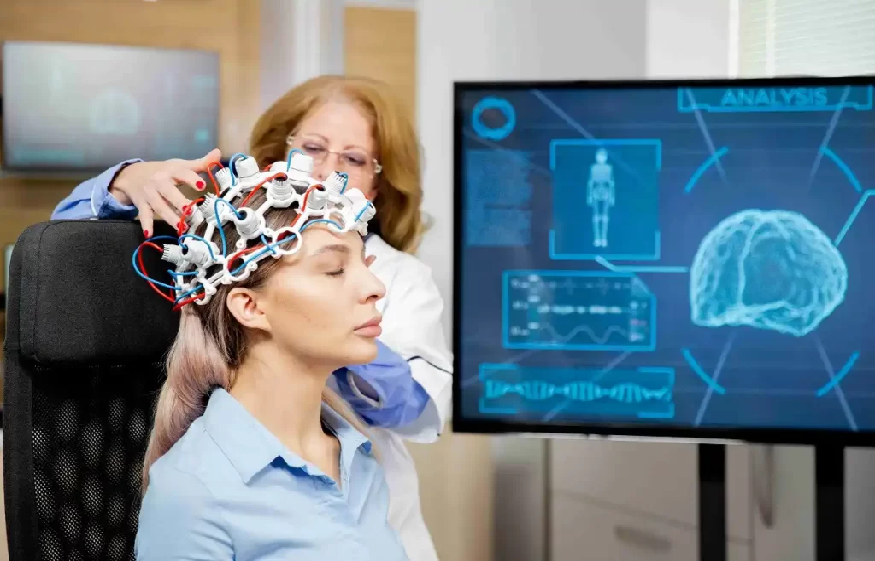
What Are the Most Common Disorders Treated in Neurology?
Neurology is a medical specialty focusing on disorders of the nervous system, which includes the brain, spinal cord, and peripheral nerves. For patients seeking care in Alexandria neurology, it’s important to understand the range of conditions that neurologists treat. From chronic headaches to complex neurodegenerative diseases, neurologists diagnose, manage, and treat a variety of disorders that impact the quality of life.
1. Headaches and Migraines
One of the most frequently treated conditions in neurology is headaches, particularly migraines.
- Symptoms: Intense, throbbing pain, often accompanied by nausea, light sensitivity, or visual disturbances.
- Triggers: Stress, hormonal changes, or certain foods.
- Treatment: Neurologists may prescribe medications to prevent or alleviate migraines and recommend lifestyle modifications to reduce triggers.
Chronic migraines, which occur 15 or more days per month, often require specialized care.
2. Epilepsy and Seizure Disorders
Neurologists commonly manage epilepsy, a condition characterized by recurring seizures.
- Causes: Genetic factors, brain injuries, or infections.
- Diagnosis: Neurologists use EEGs (electroencephalograms) to monitor brain activity and confirm the diagnosis.
- Treatment Options: Anti-epileptic medications, lifestyle changes, and in some cases, surgical interventions.
Effective management helps patients lead normal, productive lives.
3. Stroke and Transient Ischemic Attacks (TIAs)
Strokes occur when blood flow to the brain is disrupted, causing potential damage to brain cells.
- Symptoms: Sudden weakness, speech difficulties, or facial drooping.
- Risk Factors: High blood pressure, smoking, and diabetes.
- Treatment: Neurologists coordinate immediate care, including clot-dissolving medications or surgical interventions, and develop rehabilitation plans for recovery.
TIAs, often called “mini-strokes,” are warning signs and require prompt evaluation to prevent major strokes.
4. Neurodegenerative Disorders
Neurologists specialize in diagnosing and managing progressive conditions such as:
- Alzheimer’s Disease: Characterized by memory loss and cognitive decline.
- Parkinson’s Disease: Causes tremors, stiffness, and difficulty with movement.
- Amyotrophic Lateral Sclerosis (ALS): Affects muscle control and eventually leads to paralysis.
5. Multiple Sclerosis (MS)
- Symptoms: Fatigue, difficulty walking, numbness, and vision problems.
- Diagnosis: MRI scans and spinal fluid analysis.
- Management: Neurologists may prescribe immunosuppressive therapies and physical therapy to manage symptoms and reduce relapses.
Early diagnosis and treatment are crucial in minimizing long-term disability.
6. Peripheral Neuropathy
This condition affects the peripheral nerves, causing weakness, numbness, and pain, usually in the hands and feet.
- Causes: Diabetes, infections, or exposure to toxins.
- Treatment: Managing the underlying cause, such as controlling blood sugar levels in diabetics, and prescribing medications to alleviate nerve pain.
Neurologists help patients regain function and reduce discomfort through tailored treatment plans.
7. Movement Disorders
In addition to Parkinson’s, neurologists treat other movement disorders such as:
- Essential Tremor: Causes involuntary shaking, particularly in the hands.
- Dystonia: Involves muscle contractions leading to abnormal postures.
- Huntington’s Disease: A genetic condition causing movement, cognitive, and psychiatric symptoms.
Treatment includes medications, physical therapy, and sometimes surgical options like deep brain stimulation.
8. Sleep Disorders
Neurology also encompasses the treatment of sleep-related conditions.
- Common Disorders: Insomnia, narcolepsy, and sleep apnea.
- Diagnosis: Sleep studies and neurological evaluations.
- Treatment: Lifestyle changes, medications, or devices like CPAP machines for sleep apnea.
Restful sleep is essential for neurological health, making this an important area of care.
9. Neuromuscular Disorders
These conditions affect the nerves that control voluntary muscles.
- Examples: Myasthenia gravis, muscular dystrophy, and Guillain-Barré syndrome.
- Symptoms: Muscle weakness, fatigue, or paralysis.
- Treatment: Includes immunotherapy, physical therapy, and in some cases, respiratory support.
Early intervention helps improve outcomes and maintain mobility.
Conclusion
Neurology covers a vast range of disorders that affect the nervous system, from common conditions like migraines to complex diseases such as ALS. For individuals experiencing symptoms or seeking specialized care, consulting with experts in Alexandria neurology can provide a clear diagnosis and effective treatment plan. Timely intervention and expert guidance are crucial for managing these conditions and improving quality of life.


